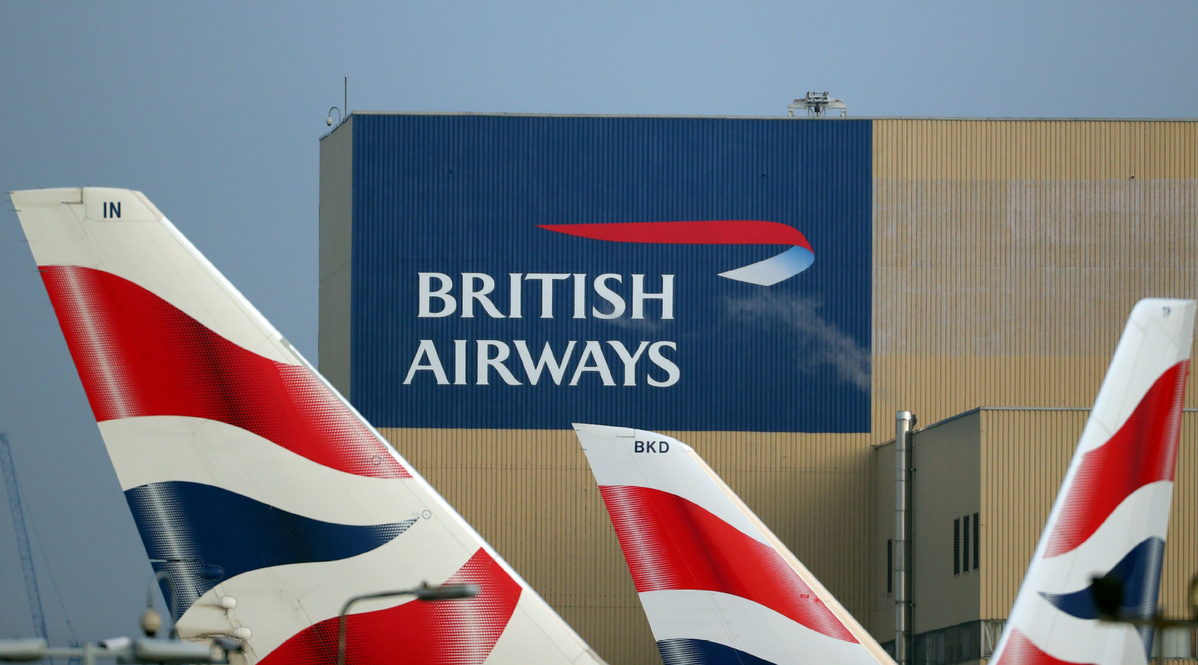BA boss optimistic in spite of virus challenges


The boss of British Airways' parent company believes the world's aviation industry will face relatively mild turbulence as a result of the ongoing novel coronavirus outbreak.
Willie Walsh, chief executive officer of the Anglo-Spanish multinational airline holding company International Airlines Group, said he believes the epidemic will have a marginal impact on global travel demand, something he believes the industry is capable of shrugging off.
"The aviation industry is very robust," Reuters news agency reported him telling journalists from the sidelines of a CAPA aviation summit in Doha, Qatar. "We may see some marginal impact."
He made the upbeat comment in the wake of dozens of airlines suspending flights into and out of China, where the number of confirmed cases of novel coronavirus rose to 28,018 on the Chinese mainland as of Wednesday, including 563 deaths.
Many of the airlines were reacting to edicts from governments, including the United Kingdom's, to avoid all unnecessary travel to the Chinese mainland.
Walsh said the suspension of BA's flights between London Heathrow and its two main destinations in China-Beijing and Shanghai-equates to around 1 percent of the carrier's overall capacity.
And, he said, he does not believe fear of the virus will stop people from traveling internationally in the coming months.
Walsh also noted that the industry is healthy enough to be able to absorb any downturn in China's economy that might result from the impact of the virus.
Travel to and from China had started to slow ahead of the airlines suspending services. Data from Forwardkeys, which analyzes global aviation capacity, identified a 6.8 percent slump in outbound travel from China during Chinese New Year and a 7.2 percent fall in numbers traveling into China during the same period.
Reuters said Alexandre de Juniac, chief executive of the International Air Transport Association, or IATA, echoed Walsh's comments, saying: "This industry has demonstrated its ability to overcome these types of difficult events and overcome them successfully."
Barron's, the US financial magazine, reported on Thursday that investors seemed to share the optimism, as airline stocks bounced back following an initial slump in the immediate aftermath of disruption caused by the virus outbreak.
The publication said stocks had been buoyed by reports that a breakthrough in the development of a vaccine was imminent.
Despite the upbeat assessments, Visit Britain, the UK's official tourism body, said there will be an "obvious and immediate knock-on impact" for the tourism industry from the virus outbreak
Air freight, meanwhile, had a poor 2019 and that trend is likely to continue this year.
Full-year figures from the IATA for 2019 show a 3.3 percent fall in demand in comparison to 2018, despite capacity increasing by 2.1 percent.
It was the first fall in air freight volumes since 2012.
The IATA said the drop was down to weak growth in global trade of just 0.9 percent and slowing GDP growth in manufacturing-intensive economies. It noted the novel coronavirus outbreak will have an impact in the months to come.
"Trade tensions are at the root of the worst year for air cargo since the end of the Global Financial Crisis in 2009," said de Juniac. "While these are easing, there is little relief in that good news as we are in unknown territory with respect to the eventual impact of the coronavirus on the global economy. With all the restrictions being put in place, it will certainly be a drag on economic growth. And, for sure, 2020 will be another challenging year for the air cargo business."
The IATA represents 290 airlines that are collectively responsible for around 82 percent of global air traffic.

































